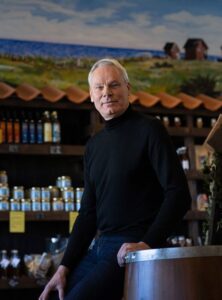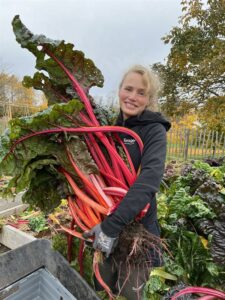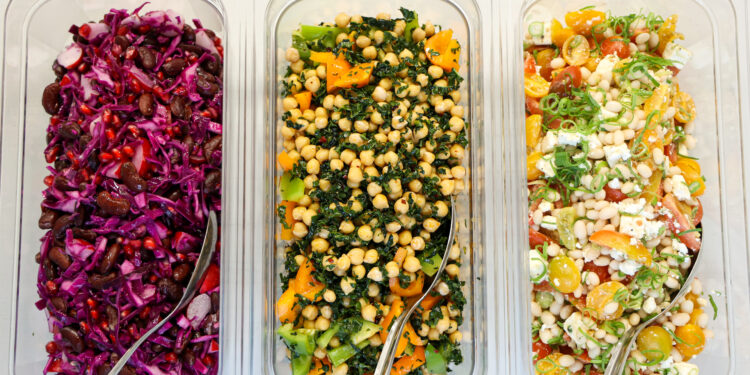A large-scale, domestic value chain for Swedish-grown legumes and products is now being introduced. This could be the breakthrough for Swedish-produced legumes that are easy to prepare and delicious to eat.
According to the latest proposal for Swedish national dietary guidelines, we should eat legumes every day for both health and environmental reasons. While Swedish-grown legumes have been available on the market, they have either been cooked abroad or sold dried – requiring soaking and cooking – or have been priced so high that schools and lunch restaurants have found them difficult to use. The simple reason for this is the lack of a value chain in Sweden.


Now, such a large-scale value chain exists. Axfoundation has brought together key stakeholders and led the development process. The legumes are grown and hulled by Kalmar Ölands Trädgårdsprodukter and processed by Sevan in Sigtuna. Compared to legumes cooked abroad, these products have half the climate footprint.
– We are aiming for a systemic shift, and now there is large-scale production of Swedish legume products that are tasty and do not require long transports. This is also a crucial step for Sweden’s food preparedness, says Veronica Öhrvik, Project Manager within the Future Food program at Axfoundation.
The legume products are affordable and easy to prepare.
 – Thanks to this collaboration, professional kitchens can now purchase fully Swedish-grown and processed legumes at a price that allows them to use them daily, says Anna Henning Moberg, Head of Operations at Torsåker Farm, Axfoundation’s development center.
– Thanks to this collaboration, professional kitchens can now purchase fully Swedish-grown and processed legumes at a price that allows them to use them daily, says Anna Henning Moberg, Head of Operations at Torsåker Farm, Axfoundation’s development center.
The products are now being launched by Martin & Servera for restaurants, hotels, schools, cafeterias, and hospitals. These include cooked frozen chickpeas, kidney beans, and white beans, as well as innovative new products such as falafel made from yellow peas and grey peas, and a patty made from yellow peas with 7% broccoli leaves. These dishes are the result of a collaboration between Axfoundation, Sevan and Kalmar Ölands Trädgårdsprodukter.
– It is incredibly inspiring to develop delicious dishes from a raw ingredient with such significant health and environmental benefits. For public kitchens, which have both climate goals to achieve and Swedish dietary guidelines to follow, these products are a perfect fit, says Elin Ingves Pyk, CEO of Sevan.


Currently, legumes are cultivated on only about two percent of Sweden’s arable land, despite their many advantages in terms of taste, health, climate impact, and agricultural sustainability.
– Legumes are climate-smart and rich in protein and fiber. Now, the industry and the market need to recognize the added value of Swedish-grown and Swedish-produced legumes, says Håkan Johnsson, CEO of Kalmar Ölands Trädgårdsprodukter.
Axfoundation’s hope is that Swedish-grown and Swedish-prepared legumes will become a natural part of school meals and lunch restaurants, and eventually in Swedish households as well. This benefits public health and the planet while also creating new jobs and better margins for farmers.




